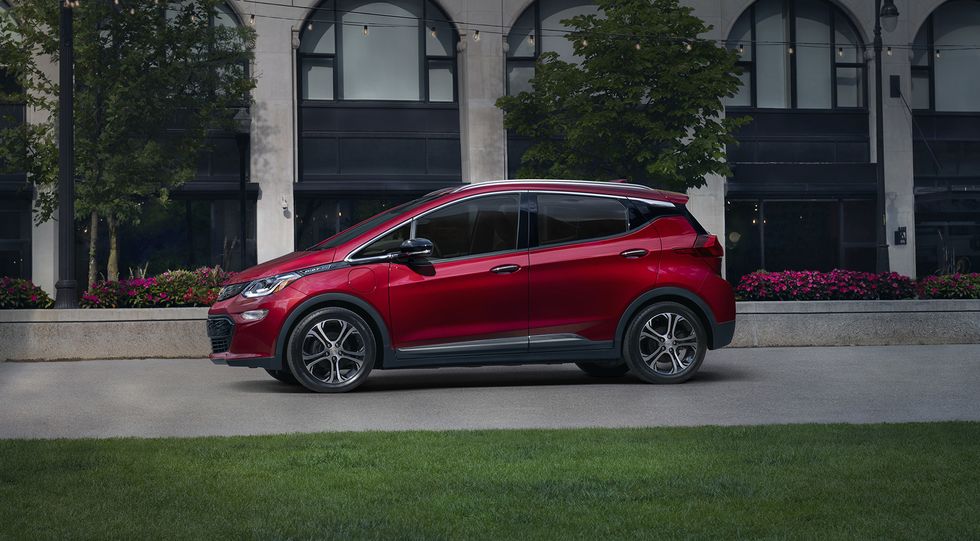In November 2020, a National Highway Traffic Safety Administration (NHTSA) recalled nearly 69,000 vehicles due to a fire risk. A Consumer Alert has now been issued by the NHTSA for Chevy Bolt owners who were affected by that recall, whether or not the recall had been completed. Owners are being urged not to park their cars inside a garage or beside a structure, and unattended charging overnight is discouraged.
It appears a second recall is imminent as both General Motors and the NHTSA investigate two fires in vehicles that had already received the recall repair issued in November. One of the impacted cars belonged to Vermont state Rep. Timothy Briglin whose 2019 Chevy Bolt caught fire in his driveway on July 1 while charging. He has been a supporter of electrification in the auto industry. The second fire was in New Jersey.
The original recall
The November recall is specific to batteries manufactured at LG Chem’s Ochang, Korea plant and is intended to address potential fires in high-voltage batteries when “charged to full, or very close to full, capacity.” To mitigate the risk of fire, affected vehicles receive a software update that limits charging capacity to 90% in the interim.
The original recall was issued after 12 battery fire allegations were submitted, of which GM had verified five by November. In that recall, drivers were also urged to park outside and away from structures while charging until the campaign had been completed on their vehicle.
The corrective and final repair for the recall includes diagnosing and replacing “battery module assemblies as necessary” and installing “advanced onboard diagnostic software” that can identify developing problems prior to causing concerns like a fire, according to the MyChevrolet Bolt EV Recall page. Once the final repairs are done, the 90% charge restriction is also lifted.
Rep. Timothy Briglin’s car reportedly had its final recall performed when the battery fire ignited, potentially undermining the recall’s effectiveness and putting doubt into owners’ minds about their EV’s safety.
Highlights the need for battery safety
Although electric cars have been touted as a safer, lower maintenance mode of transportation, these Chevy Bolt EV battery fires show that there are still safety risks with EVs that need to be evaluated. Tesla has previously been under scrutiny for fires due to short-circuiting, not to mention a Tesla Model S Plaid that began smoking and burning while being driven in Pennsylvania on June 29.
In an NBC report, one Tesla fire after a crash required nearly 28,000 gallons of water to put out as inordinate amounts of ‘stranded energy’ are released from the car. Comparatively, a fire in a vehicle with an internal combustion engine usually can be extinguished with 300 gallons.
As the car industry becomes more and more electrified, vehicle owners will need to be informed on safety protocols for issues unique to EVs – such as battery fires and charging hazards. And carmakers will be continuing to search for power storage options that are less volatile than the current lithium-ion battery packs to avoid major fires.
It’s estimated that as many as 10% of new vehicle sales will be BEV by 2025. A major recall that includes limiting charge capacity – and, consequently, total range – will not be an acceptable fix by consumers’ standards, even for an interim fix.
Did you enjoy this article from Jason Unrau? Please share your thoughts, comments, or questions regarding this topic by submitting a letter to the editor here, or connect with us at newsroom@cbtnews.com.
Be sure to follow us on Facebook and Twitter to stay up to date or catch-up on all of our podcasts on demand.
While you’re here, don’t forget to subscribe to our email newsletter for all the latest auto industry news from CBT News.










